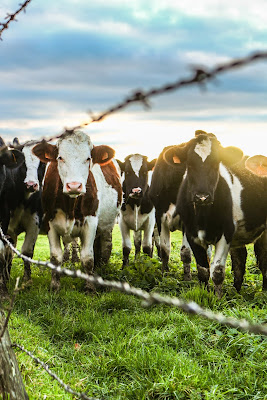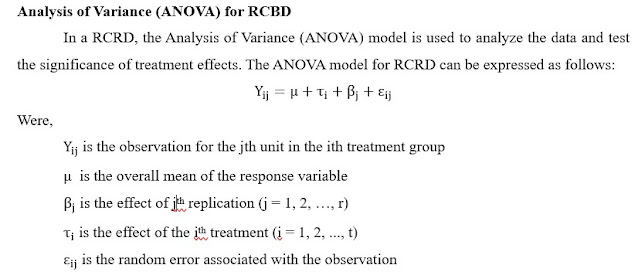Principles of design of experiments-III: Local Control
This blog explains the concept of local control. (reading time 6 min.)
There are three principles of designs of experiments:
1) Replication
3) Local Control
Replication and randomization alone can't remove the external influence of exogenous factors. So local control comes to the rescue.
Local control is the grouping the experimental units into blocks such that within block there is homogeneity and between the block there is heterogeneity. The word block and replication are used interchangeably.
By use of local control, between the block (replications) variations gets accounted into ANOVA and the experimental error gets reduced. Thus, local control is also termed as error control. Ideally, experimental error in an experiment is the measure of "within block (replication)" variation.
In the field of agriculture research soil is the experimental unit. Blocking is done by technique of uniformity trials and soil fertility maps. Let's see one example of application of local control in a veterinary science experiment.
Example
Suppose we have 4 different cow feeds to study their effects on milk yield and we have 20 cows to be used in the experiment. Should we directly assign feeds to the cows by using randomization?
We should first study the cows on the basis of different criteria like age, weight etc because these factors share a relationship with milk yield (our dependent variable). The criteria for which the cows are not homogenous should be subjected to local control i.e., blocking should be done on the basis of that criteria.
Suppose cows are of different ages. Then we should form two or more groups of cows depending on the variation in their ages. After blocking, the cows within the group would be homogenous. The "age groups" should be involved as a factor in the ANOVA along with the feeds.
Hope you get a crystal clear idea about the utility of local control.
Suppose we have 4 different cow feeds to study their effects on milk yield and we have 20 cows to be used in the experiment. Should we directly assign feeds to the cows by using randomization?
We should first study the cows on the basis of different criteria like age, weight etc because these factors share a relationship with milk yield (our dependent variable). The criteria for which the cows are not homogenous should be subjected to local control i.e., blocking should be done on the basis of that criteria.
Suppose cows are of different ages. Then we should form two or more groups of cows depending on the variation in their ages. After blocking, the cows within the group would be homogenous. The "age groups" should be involved as a factor in the ANOVA along with the feeds.
Hope you get a crystal clear idea about the utility of local control.
To learn more about Agricultural Statistics follow my youtube channel



Comments